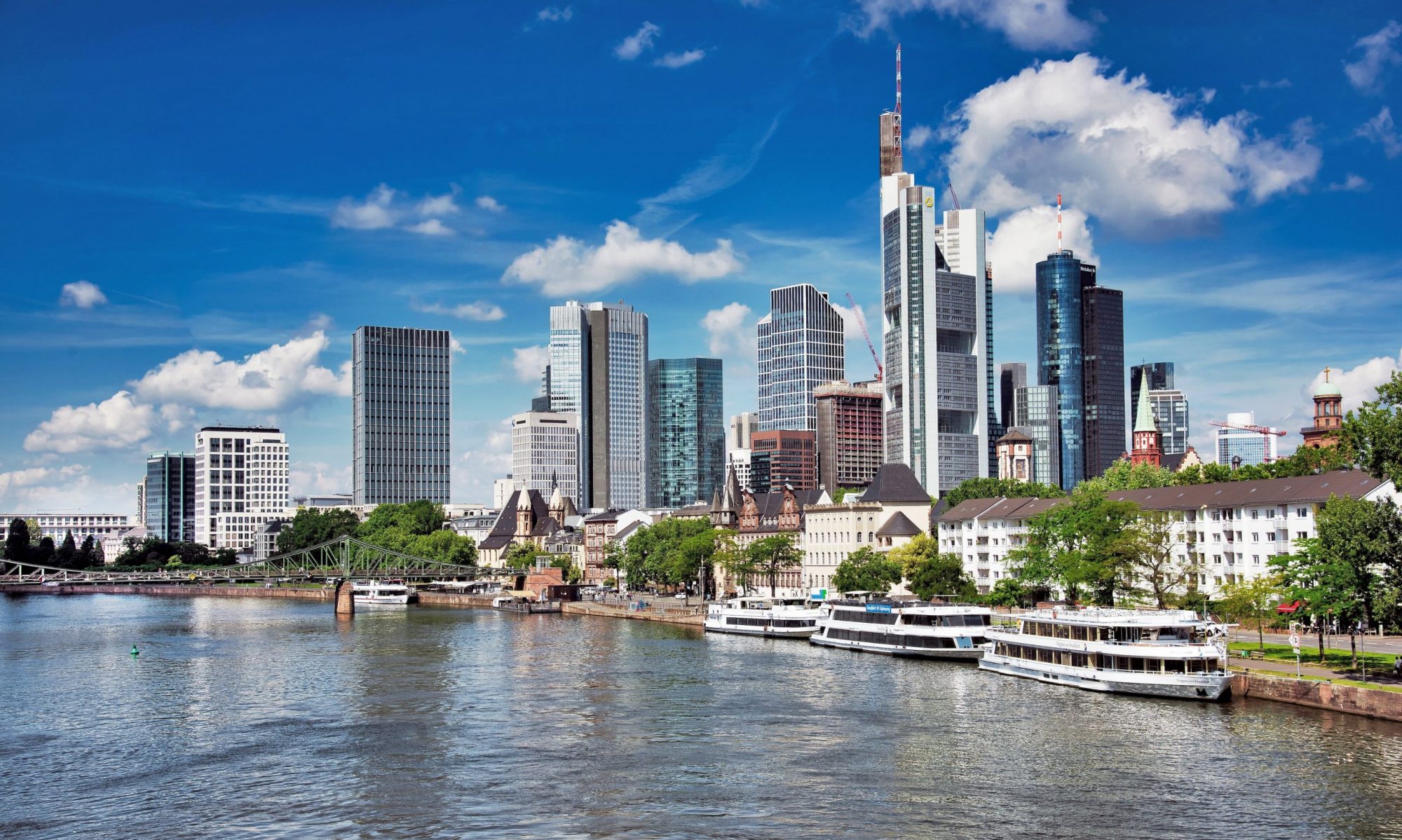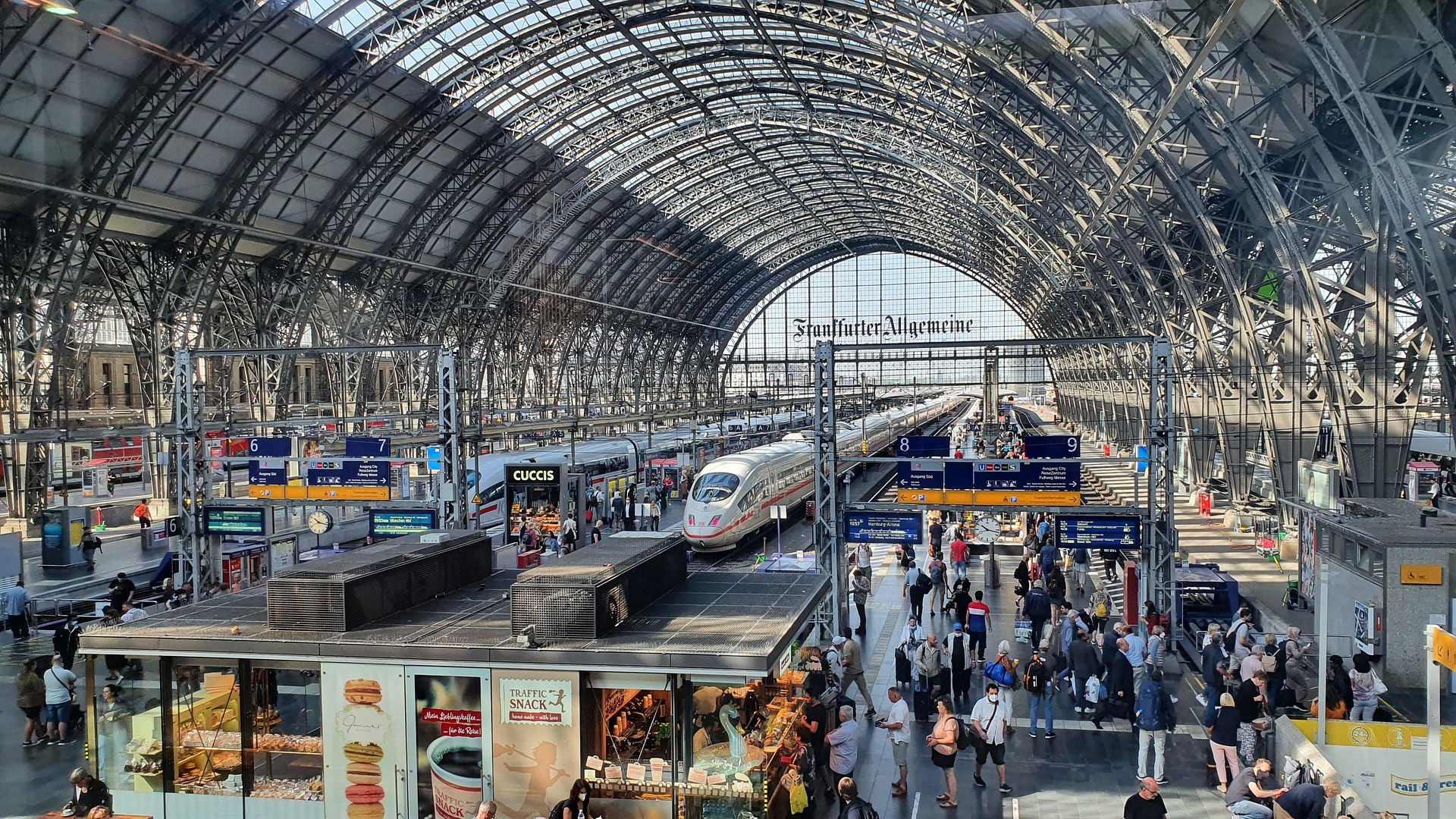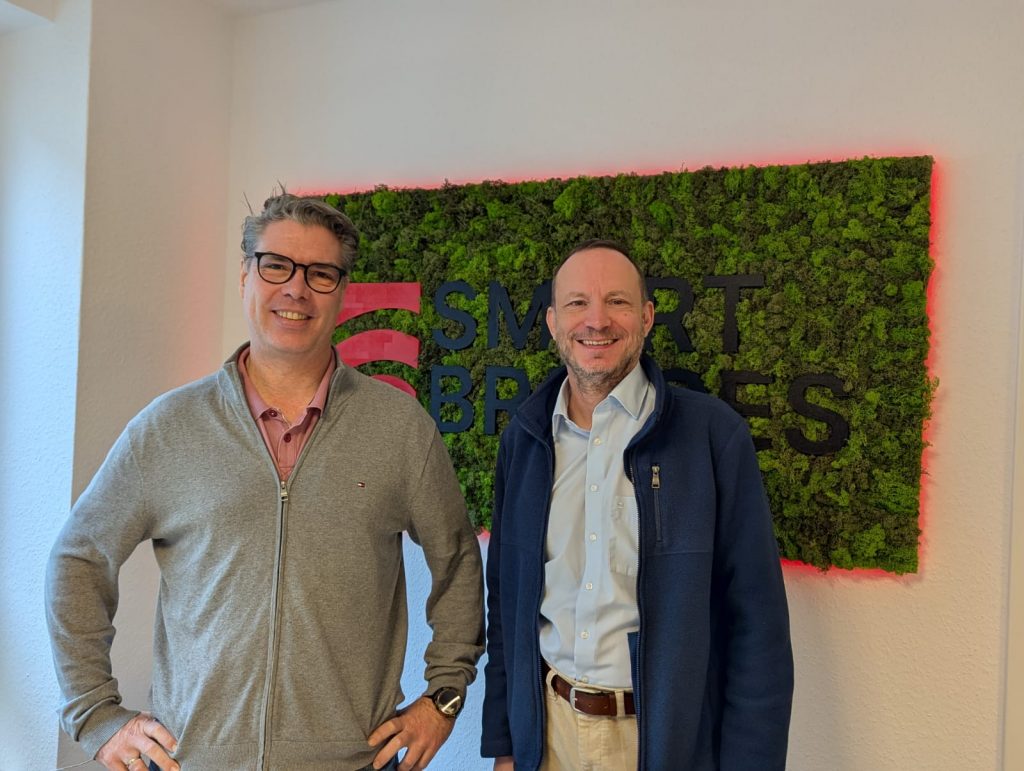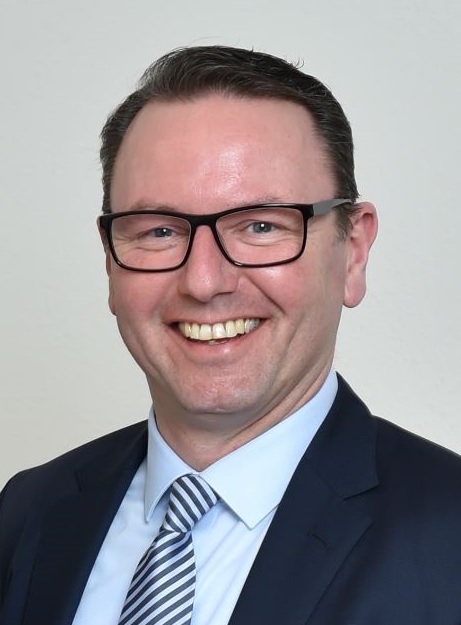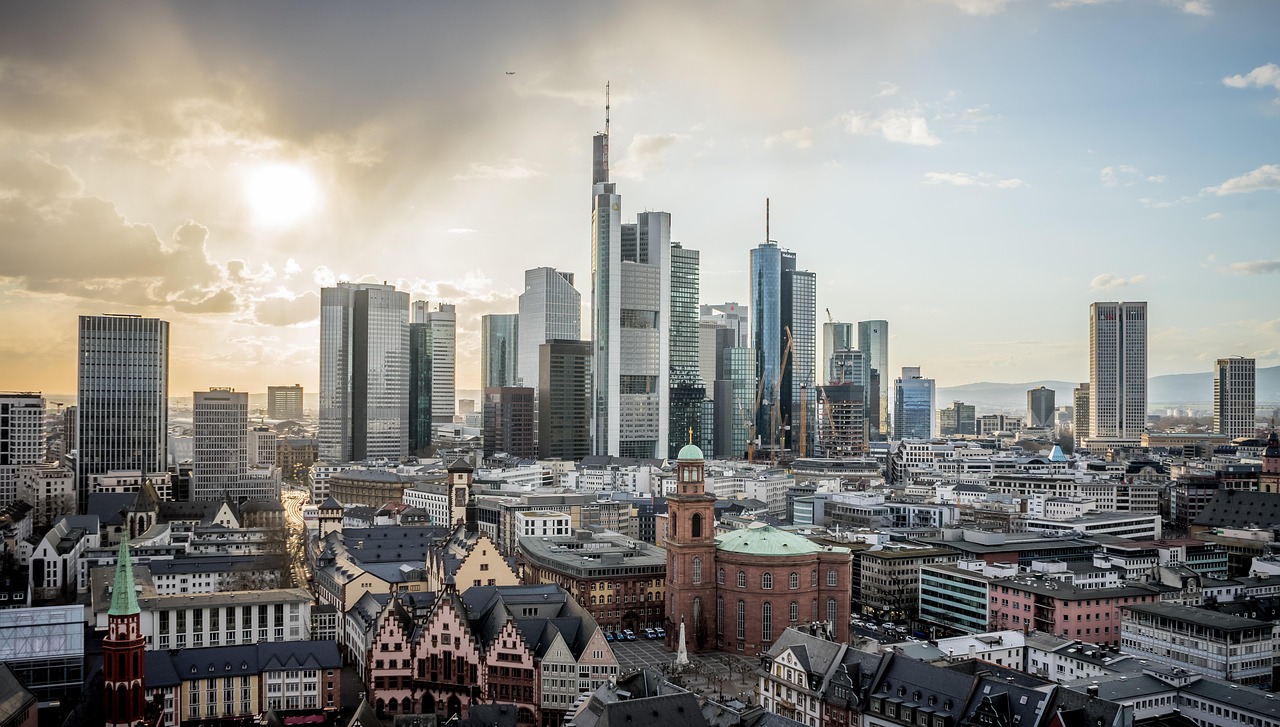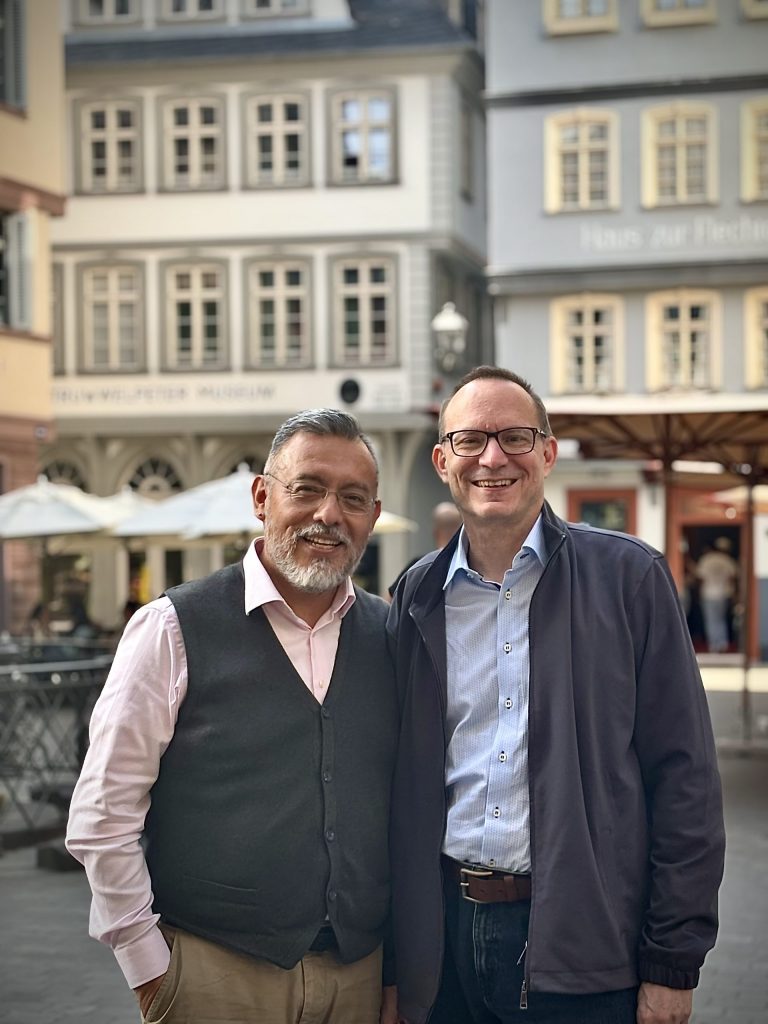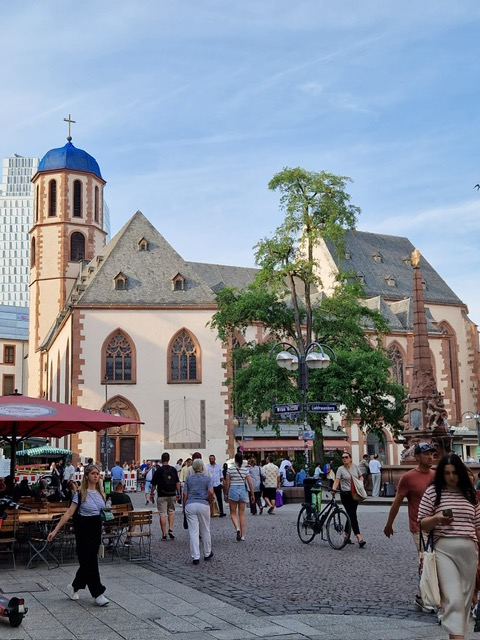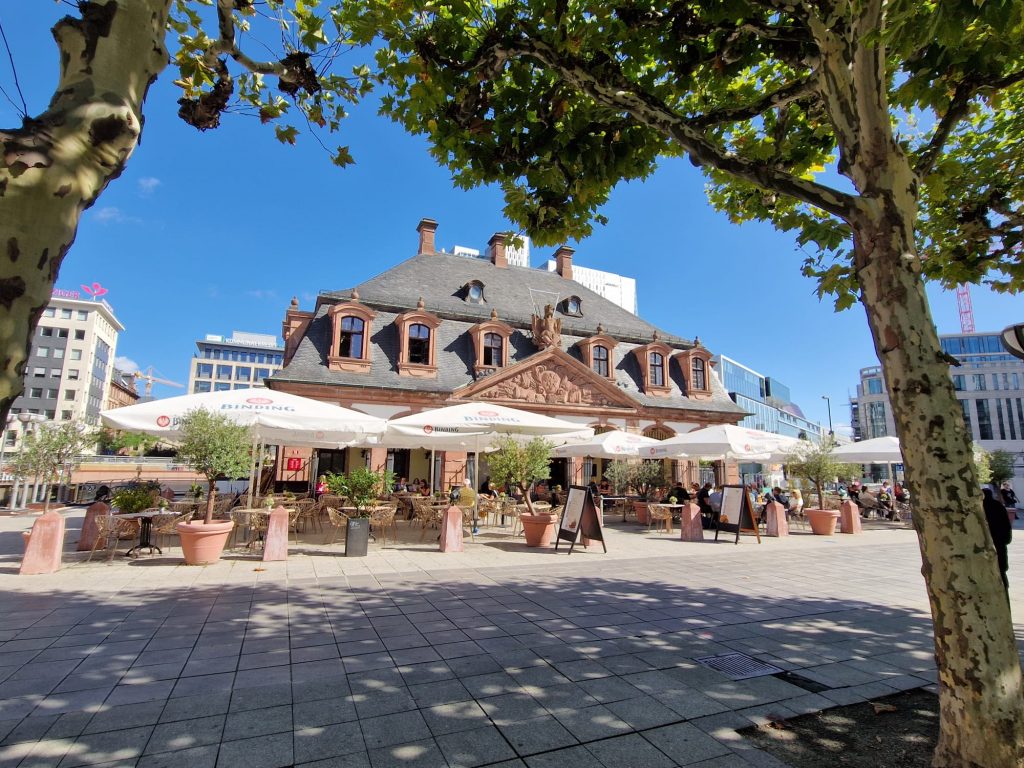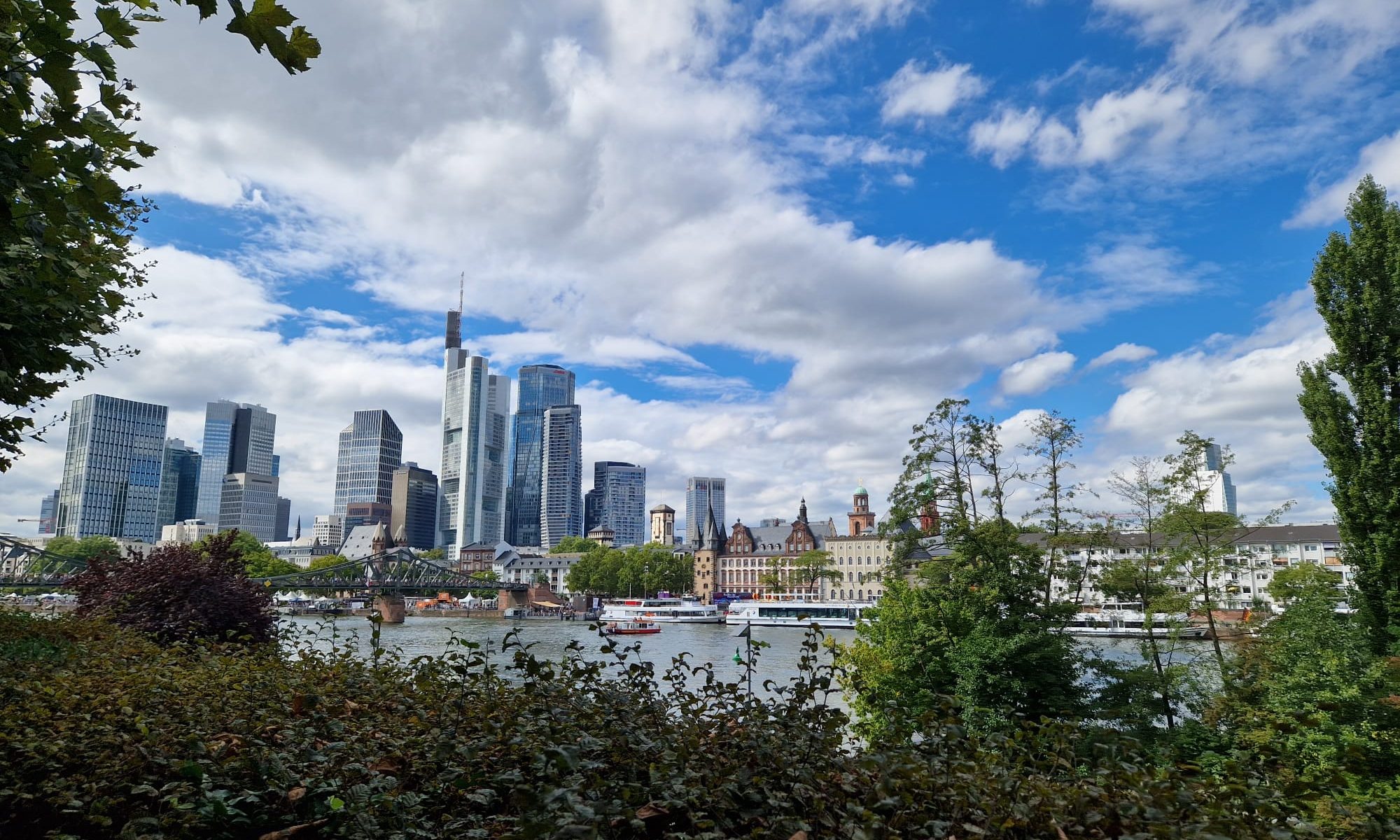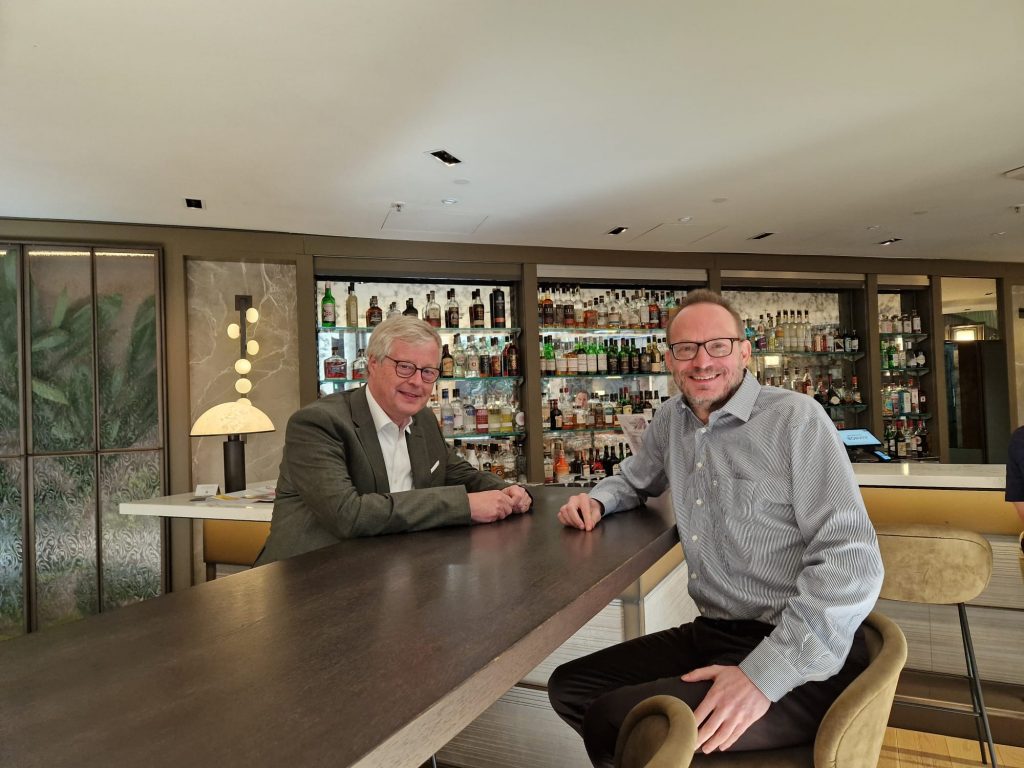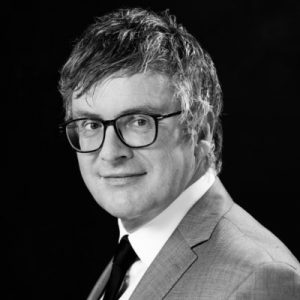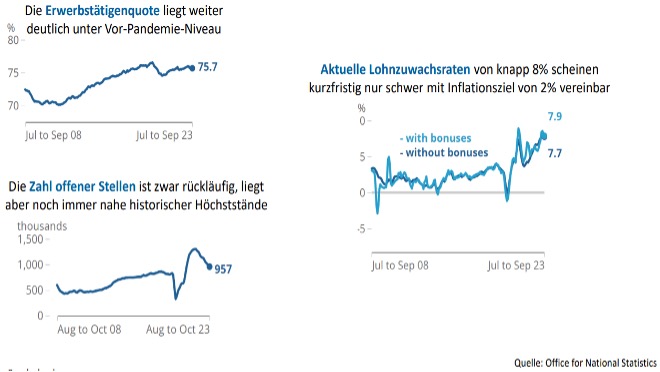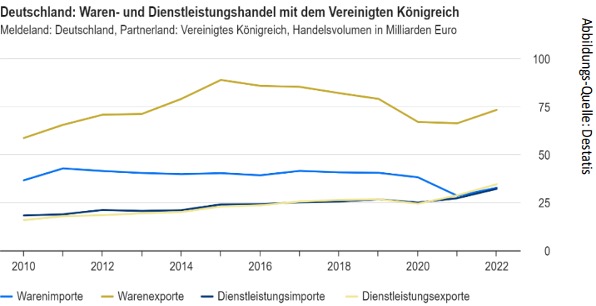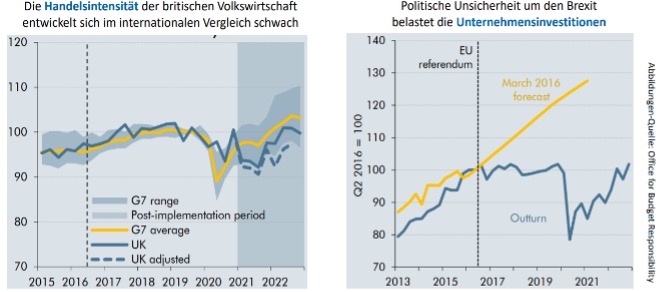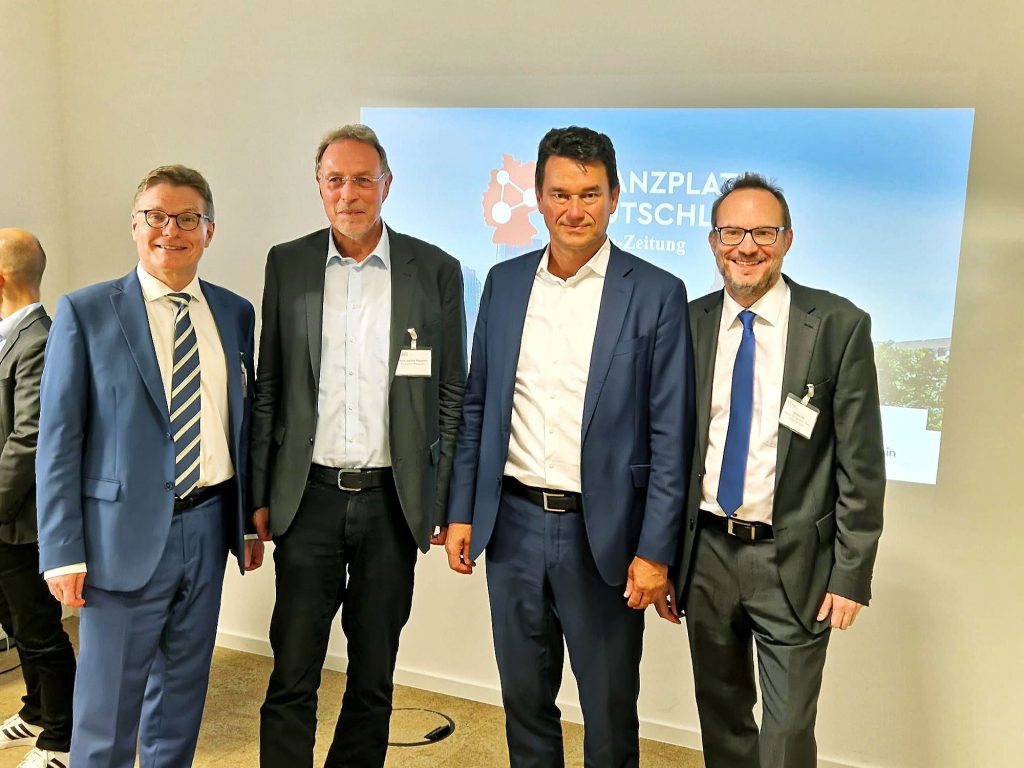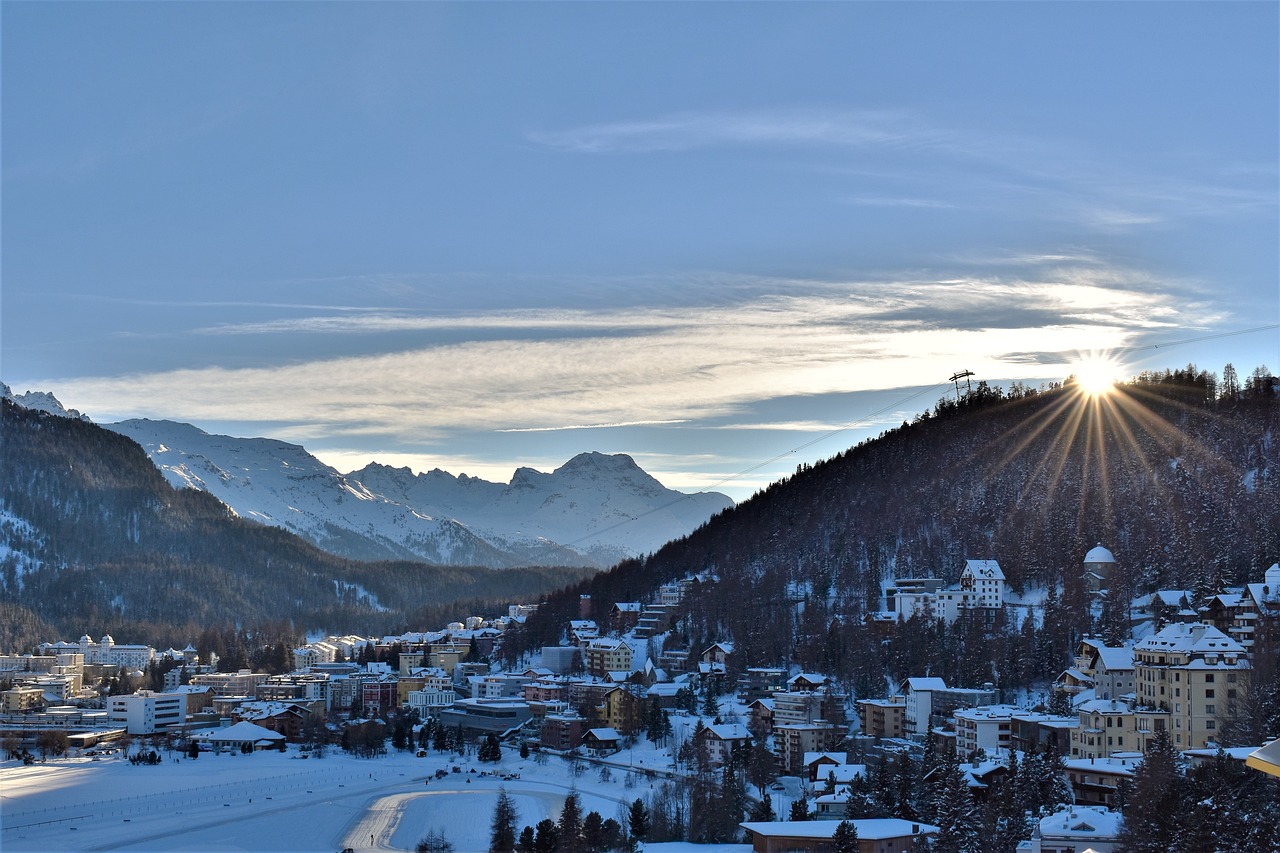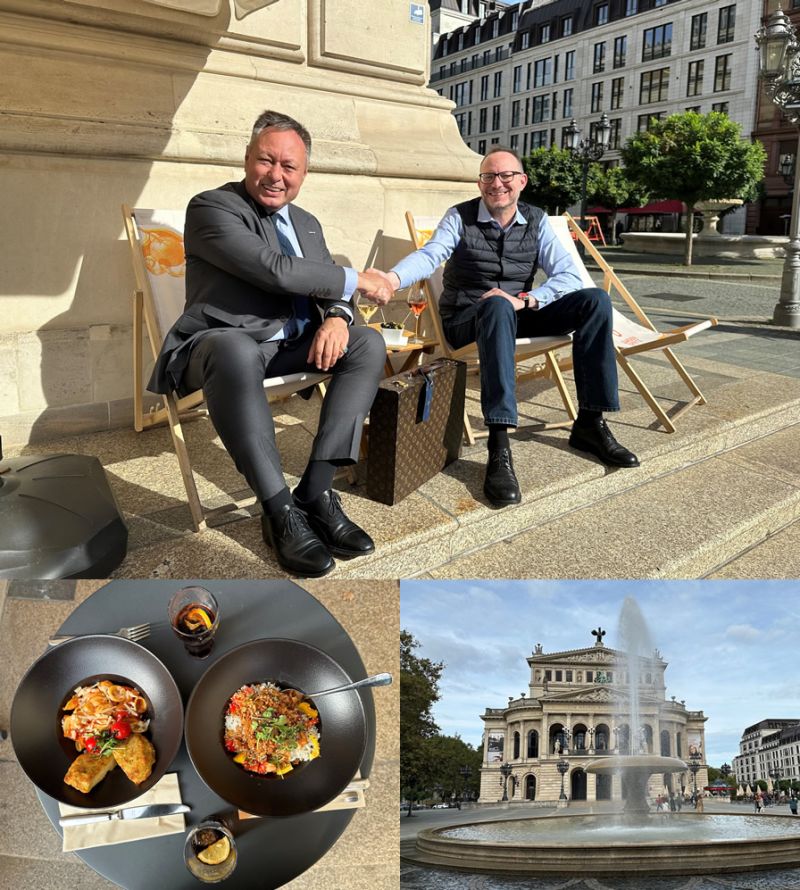Input, ideas & suggestions: What other topics could be addressed in the two panel discussions?
Frankfurt is an interesting ecosystem for family offices, asset managers, start-ups, and fund boutiques in the liquid and illiquid sectors (alternative investments). FINANZPLATZ-FRANKFURT-MAIN is once again supporting the “Forum for Digital Assets” (FDV – Manuel Müller & Samir Zakaria) this year in communications and as expert support for two panel formats.
“Financial Center Frankfurt am Main meets Wealth Management” (February 25, 2026)
This year, there will once again be an event on the eve of the “Forum for Digital Assets.” Last year, we addressed the topic of “Family Offices, Asset Allocation & Financial Education.” We want to take this opportunity to once again express our sincere thanks to the panelists at that time for the interesting exchange of ideas in Frankfurt: Dr. Henning Schöer (FIDUBONUM), Peter Preller (HQ Trust), and Reiner Konrad (Focam AG).
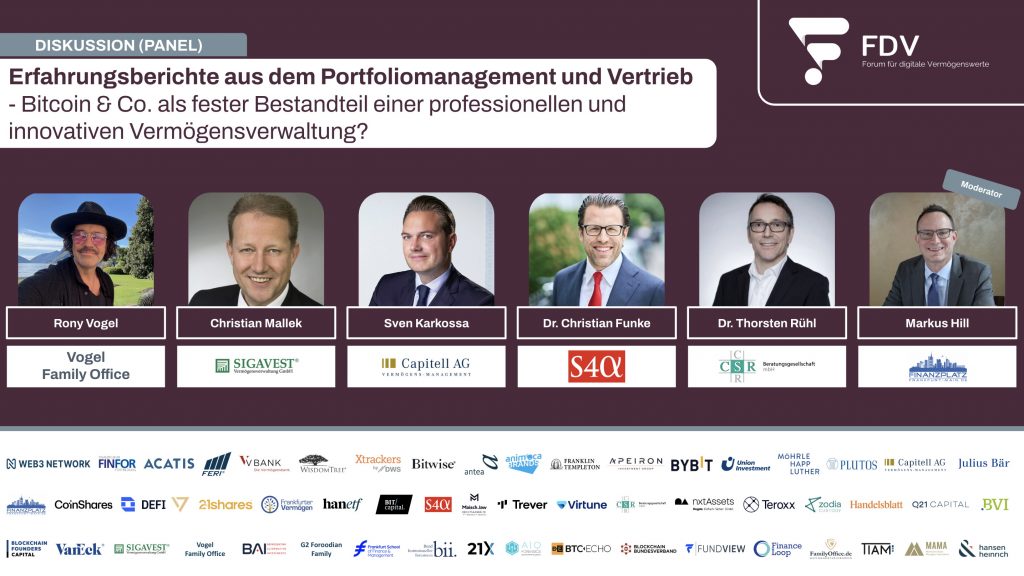
On February 25, we want to focus more closely on the topics of “Family Offices, Asset Management, Next Gen, Startups & Venture Capital – Ecosystem Hesse & Europe.” Why is this topic so interesting, and why does it also build interesting bridges to other areas? Many family offices and asset managers (corporate/independent – “boutiques”) deal intensively with the topic of NexGen (next generation, succession, digital affluents & MORE) when serving wealthy clients. This young generation generally speaks a completely different language than the traditional clientele in wealth management: “Established, senior, aged, and not necessarily digitally savvy” (quote from a family officer from Frankfurt who did not want to be named here). When it comes to managing larger assets, the focus is increasingly shifting to clients in the “TRADITIONAL” succession sector or from the “SELF-MADE” segment.
What topics could be addressed this evening? Some things have already been mentioned above. Of course, Christian Neuhaus (Finvia) and Sven Karkossa (Capitell AG) will report from the perspective of wealth management. It is interesting to note that a generational change is now also taking place in the area of family offices (SFO & MFO). These institutions are also repositioning themselves, just as there are now many independent asset managers competing for young talent. Next Gen, Startups, Venture Capital & Ecosystems – Noel Zeh (Wunderland Capital), as a VC fund of funds manager with “startup seeding” at a Hessian Volksbank, will provide additional impetus to the discussion: How do you sell a startup? What expectations do young entrepreneurs with an affinity for technology have of the financial industry? What needs to be considered in the due diligence of venture capital funds? Why should Germany become aware of its own strengths in the field of technology & investments? Who should talk to whom in which ecosystem? What connects Germany with Europe in the context of technology seeding, as opposed to the US? etc.
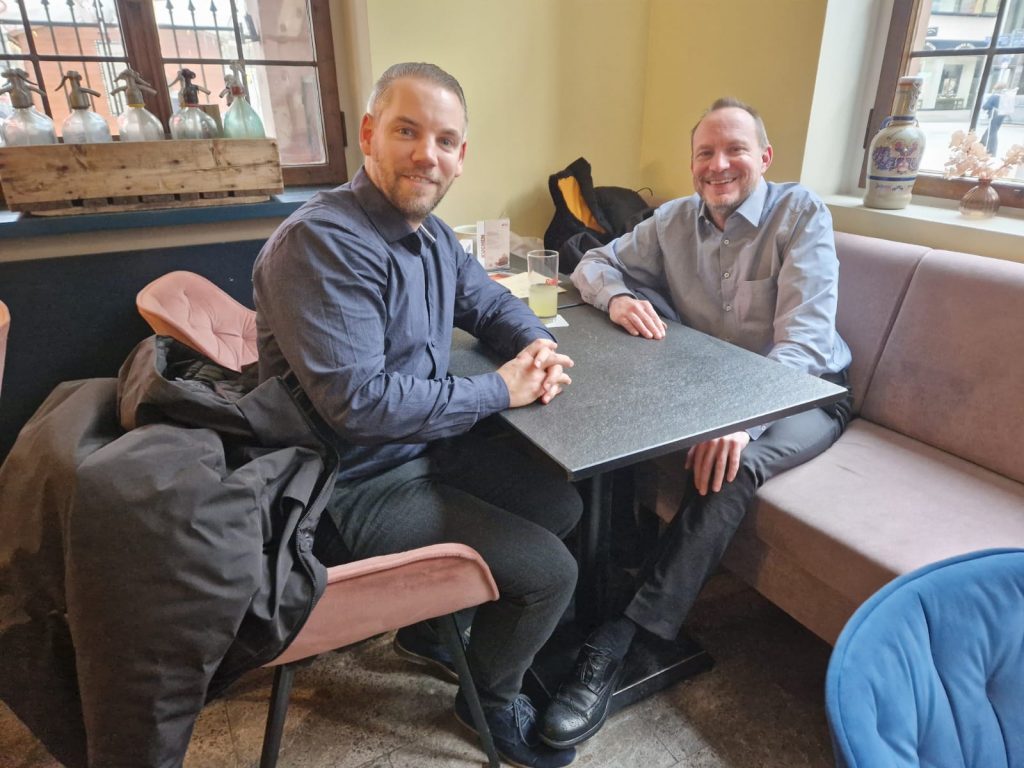
The discussion aims to stimulate thought, as the most interesting ideas often arise in advance: Where does asset management stand? Which investments will be interesting in the coming years? What does the next generation bring to Frankfurt, Hesse, and Europe? Who should actually talk to whom, not only in the Frankfurt financial center? Input, ideas, and suggestions are always welcome: info@markus-hill.com / +49 (0) 1634616 179
Information about the event “Forum for Digital Assets” (FDV)
PS: From our long-standing collaboration with a Swiss asset manager in the field of “value investing & commodities,” we know that the topic of PROCYCLICAL & ANTICYCLICAL INVESTING always leads to exciting discussions – we look forward to an exciting panel here on February 26, 2026. This topic will also be discussed in greater depth. Perhaps in the special topic “FINANZPLATZ FRANKFURT meets WEALTH MANAGEMENT & DIGITAL ASSETS.” Of course, input, ideas, and suggestions are always welcome here as well. It could be that there are technical connections between the two panel topics.
PPS: The topic of family offices often builds bridges to other areas. We are also looking forward to the fireside chat on March 17 on the topic of “Private Markets, Family Offices, Foundations – Due Diligence & Challenges for 2026” at the event hosted by Christian Hommens (Smart Bridges GmbH). The discussion with J. Paulo M.dos Santos (VIRATIO) will also focus on the use of alternative investments by foundations, as well as the importance of asset manager selection and investment guidelines (case study). At the PRIVATEMARKETS_ONE event on February 2, 2026, Lukas Bennmann, a colleague of Noel Zeh (Wunderland Capital), moderated a panel discussion with FERI, KfW, the Joachim Hert Foundation, and a savings bank as panelists. Here, too, the impression was that the venture capital sector requires a great deal of know-how, patience, and moderation of expectations on the part of investors.
Information about the event “PRIVATE MARKETS EXCELLENCE FORUM”
Dialogue & information:
FINANZPLATZ FRANKFURT AM MAIN on LINKEDIN – CHANNEL
FINANZPLATZ FRANKFURT AM MAIN on LINKEDIN – GROUP
FONDSBOUTIQUEN on LINKEDIN – CHANNEL
FINANZPLATZ-FRANKFURT-MAIN.DE, DACHLI Region & FONDSBOUTIQUEN.DE (2026) – Topics, interests, dialogue (selection & “snapshots”)
February 25, 2026, Frankfurt – “Financial Center Frankfurt am Main meets Wealth Management”
(Markus Hill – Moderator: Christian Neuhaus – FINVIA, Sven Karkossa – Capitell Vermögens-Management AG, Noel Zeh – Wunderland Capital)
February 26, 2026, Frankfurt – “Forum for Digital Assets (FDV)”
Editorial team – Special topic “Frankfurt am Main as a financial center meets wealth management & digital assets”
(Interviews / guest contributions, “support” & MORE: info: markus-hill.com)
March 17, 2026, Frankfurt – Private Markets Excellence Forum – “Private Markets, Family Offices & Foundations – Due Diligence & Outlook 2026”
(Markus Hill – Fireside Chat: J. Paulo Dos Santos – Managing Director, VIRATIO GmbH)
Interview with Christian Hommens – SMART IMPACT INVESTING & PRIVATE MARKETS
Spring 2026: Investor study “Preferences of institutional investors in real estate & alternative investments”
(Markus Hill – Moderator, Podcast: Sebastian Thürmer, “artis & x” – Example 2025)
April 16, 2026 – “köln let’s talk” – Bettina Timmler – Real Estate & Dialogue
(Media partnership)
May 12, 2026, Frankfurt: “Value Investing & Commodities & MORE”
(Markus Hill – Moderator & brief introduction to “Fund boutiques & the US formula” – Alex J. Rauschenstein & Urs Marti, SIA FUNDS AG – FINANZPLATZ SCHWEIZ)
June 17, 2026, Zurich: Insights – “Family Offices & Fund Boutiques” – The Mountain Talks Summit – FUNDPLAT
(Presentation – Markus Hill)
November 10, 2026, Frankfurt: “Financial Center Frankfurt am Main meets Financial Center Liechtenstein”
(Markus Hill – Moderator – LAFV Liechtenstein Investment Fund Association: Panel & Presentations)
Input, ideas, and suggestions on the above topics are welcome:
info@markus-hill.com / +49 (0) 163 4616 179
PHOTO: Marcus Kieser
